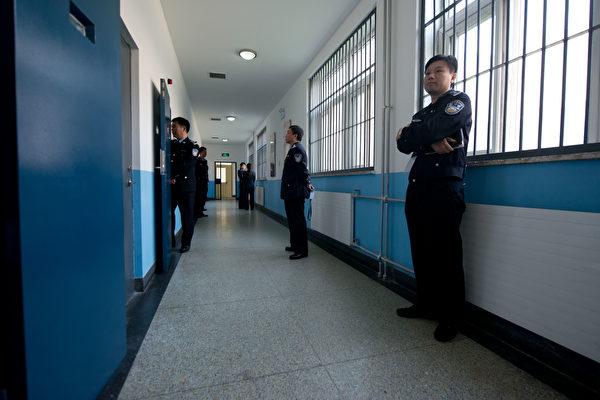Amid Beijing’s heightened crackdown on private enterprises in recent years, officials justified the move by framing it as a broader effort to combat crime in the private sector, according to two former entrepreneurs who claim to have been targeted by authorities due to their wealth.
‘Red Notice Fugitive’
Once the owner of a furniture factory, a few mines, and pawn shops, Chen Ting found all his businesses shut down in May 2020. Nearly 20 of his family members and employees were arrested and sentenced to between 1 year and 19 years.The police ransacked his home and businesses in Jiujiang city, Jiangxi Province. Overnight, his assets, valued at billions of dollars, were frozen and seized without any legal basis.
“My properties and companies were auctioned, assets were taken away, and the lawyer was immediately expelled from the scene, leaving no room for negotiation,” Mr. Chen told The Epoch Times.
Mr. Chen wasn’t there to deal with the authorities because he was visiting Hong Kong at the time, but they allegedly issued an Interpol “red notice” on him.
The Chinese laws stipulate that a “red notice” entitles the authorities to confiscate the “illegal” assets of a “red notice fugitive.”
According to Mr. Chen, Chinese Communist Party (CCP) officials accused his family members and employees of participating in organized crime, branding them as part of the underworld, but without providing any evidence. Following the arrests, the authorities publicly called for reports and informants to facilitate the investigation, he said.
Mr. Chen said the CCP’s so-called crime-fighting campaign has set quotas for the amount of cases and assets to be met for each province.
Losing $560 Million in Assets
Sun Jinliang, another businessman from Jiangxi who now resides in Canada, was allegedly victimized by Chinese authorities.He believed he might have offended a local official, and his wealth could have motivated the authorities to trump up charges against him and seize his assets.
Mr. Sun said the CCP had unlawfully initiated legal proceedings against him. Like Mr. Chen, Mr. Sun avoided arrest because he was visiting Hong Kong at the time. Instead, the authorities arrested his family members and employees and then called for evidence of crimes through online announcements.
When the authorities failed to find any evidence, they resorted to coercing confessions from his family members and employees through torture, he told The Epoch Times.
Online notices from the Jiangxi Public Security Bureau urging the public to provide evidence related to the alleged “crime” of Mr. Sun and his brother remain accessible.
He claimed that around $560 million worth of assets were seized, affecting three generations of his family.
According to Mr. Sun, his mother suffered a mental breakdown from the raid on their home and subsequently passed away. Two of his friends couldn’t cope with the pressure during interrogation, and both allegedly committed suicide on the eve they were released.
Authorities accused Mr. Sun and his brother, Sun Bocheng, of heading a criminal syndicate. In 2021, the CCP issued an Interpol red notice for his brother, resulting in his arrest upon arrival in Croatia, where he was detained for 11 months. The Croatian court requested that the Chinese Ministry of Public Security furnish evidence supporting the allegations within 30 days. However, after a 60-day wait, no evidence was presented. Consequently, Mr. Sun Bocheng was unconditionally released in December 2021. However, the incident affected his mental well-being, and he passed away suddenly in 2023, shortly after his 50th birthday.
Chinese state media Xinhua reported the achievement of the nationwide campaign initiated in January 2018, claiming that 12,485 criminal groups were eliminated as of January 2020.
State broadcaster CCTV, in a 2021 TV program, also touted the authorities’ success in “uprooting the economic foundation of the crime syndicates” by seizing $83.75 billion worth of assets.
However, the three-year campaign never stopped; it has become the norm. The Ministry of Public Security reported that it rooted out 4,048 crime groups and resolved 58,000 related cases by the end of 2023.
Mr. Sun indicated that charges such as bribery and illegal fundraising are considered “minor” to business owners. The most dreaded accusation for them is being associated with organized crime, which would entitle the CCP to confiscate and seize all personal and corporate assets.

‘The Nature of Bandits’
When questioned about the CCP’s targeting of private entrepreneurs, Mr. Sun likened the actions to tactics employed by dictators to maintain authority by eliminating “capitalists,” as stated by the Communist Party’s manifesto. “It’s akin to the nature of bandits,” he commented.Beijing pledged unprecedented support to the private sector last year, unveiling a comprehensive 31-point plan. Following this, the Supreme People’s Court deliberated on legislation to safeguard the private economy.
However, Mr. Sun expressed skepticism, cautioning against trusting the CCP.
“I did not wake up until the iron fist hit me,” said Mr. Sun. “Before 2020, I didn’t believe I would end up like this or that the CCP would seize my assets … I have kept telling my three children always to remember the persecution their father had to endure.”
He warned, “Pursuing businesses in China today equates to a one-way ticket to incarceration.”
“We want to do something for the Chinese people ... I have a feeling the CCP won’t last long; we want to do something while we still can,” said Mr. Sun, referring to their hope of bringing the human rights violators to the international court.






